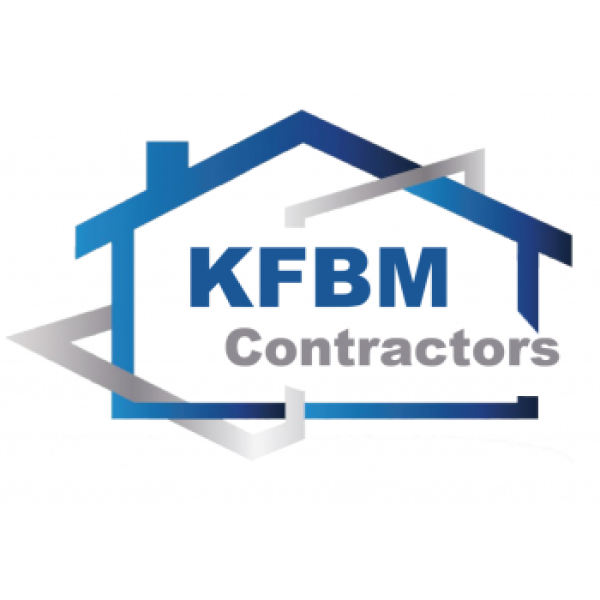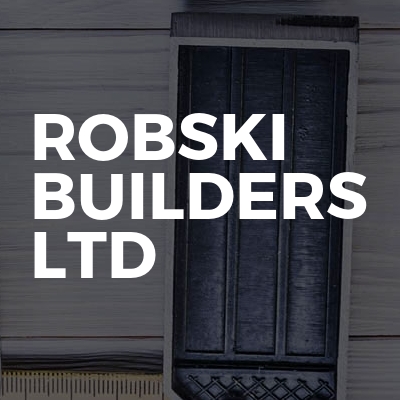Loft Conversions in Dartmouth
Welcome to MAG Developments SW Ltd, your trusted partner for exceptional building and renovation services in Derriford and thro... read more »
Hysmark Ltd is a trusted UK-based company specializing in high-quality residential construction, maintenance, and refurbishment. With ye... read more »
Welcome to Torquay Builders Ltd, your go-to experts for all building and home improvement services in Torquay... read more »
Welcome to KFBM Contractors, your go-to experts for all your building and renovation needs in Plymouth and across Devon. With a wealth of... read more »
Robski Builders Ltd: Your Trusted Building Experts in Shorton, Devon
Welcome to Robski Builders Ltd, your go-to... read more »
Welcome to JVB Building, your go-to experts for all things construction in Seaton and across Dev... read more »
Welcome to RB Building and Plumbing Services, your trusted partner for all building and plumbing needs in Great Torrington and across Dev... read more »
Welcome to Advantage Property & Maintenance SW Ltd, your go-to experts for builders, painters & decorators, loft conversions, property ma... read more »
Welcome to Riviera Group Ltd, the premier choice for builders, extension builders, loft conversions, renovations, roofers, bathroom insta... read more »
RW Carpentry & Construction: Premier Tradespeople in Landkey, Devon
Welcome to RW Carpentry & Construction, your... read more »
Kumiko (SW) Ltd is a distinguished building company based in the charming area of Lower Wear, offering a comprehensive r... read more »
Mark Lace Ltd: Leading Builders in Appledore, Devon
Welcome to Mark Lace Ltd, your go-to builders in the picture... read more »
North Devon Plastering Renovation Specialist<... read more »
BB Traditional Builders Ltd is your... read more »
Welcome to Arteaga Carpentry & Builder, your trusted... read more »
Edwards Developments S.W Ltd: Premier Builder... read more »
Sharp Design And Build is your go-to... read more »
Welcome to Mayseys Rooms Above, your premier choice f... read more »
Search Loft Conversions in places nearby
- Loft Conversions in Ashburton
- Loft Conversions in Axminster
- Loft Conversions in Barnstaple
- Loft Conversions in Bideford
- Loft Conversions in Buckfastleigh
- Loft Conversions in Budleigh Salterton
- Loft Conversions in Crediton
- Loft Conversions in Dawlish
- Loft Conversions in Exeter
- Loft Conversions in Exmouth
- Loft Conversions in Great Torrington
- Loft Conversions in Higher Dunstone
- Loft Conversions in Holsworthy
- Loft Conversions in Honiton
- Loft Conversions in Ilfracombe
- Loft Conversions in Ivybridge
- Loft Conversions in Kingsbridge
- Loft Conversions in Lynton
- Loft Conversions in Newton Abbot
- Loft Conversions in Northam
- Loft Conversions in Okehampton
- Loft Conversions in Ottery St Mary
- Loft Conversions in Paignton
- Loft Conversions in Plymouth
Understanding Loft Conversions in Dartmouth
Loft conversions in Dartmouth are becoming increasingly popular as homeowners seek to maximise their living space without the need to move. This charming town, known for its picturesque views and historic architecture, offers unique opportunities and challenges for loft conversions. In this article, we'll explore the ins and outs of loft conversions in Dartmouth, providing you with the knowledge you need to make informed decisions.
The Appeal of Loft Conversions
Loft conversions have gained traction due to their ability to transform unused attic space into functional living areas. Whether you're looking to add a bedroom, office, or playroom, a loft conversion can significantly enhance your home's value and utility. In Dartmouth, where space is often at a premium, converting a loft is an attractive option for many homeowners.
Benefits of Loft Conversions
- Increased Living Space: A loft conversion can add valuable square footage to your home.
- Enhanced Property Value: Homes with loft conversions often see a rise in market value.
- Customisation: Tailor the space to meet your specific needs and preferences.
- Cost-Effective: Generally cheaper than moving to a larger property.
Types of Loft Conversions
There are several types of loft conversions, each with its own set of advantages and considerations. The choice largely depends on your budget, the structure of your home, and your personal preferences.
Dormer Loft Conversions
Dormer conversions are one of the most common types, involving the extension of the existing roof to create additional headroom and floor space. This type is particularly popular in Dartmouth due to its compatibility with various architectural styles.
Mansard Loft Conversions
Mansard conversions involve altering the roof structure to create a flat roof with a slight slope. This type of conversion is ideal for maximising space but often requires planning permission due to the significant changes to the roofline.
Hip to Gable Loft Conversions
For homes with a hipped roof, a hip to gable conversion extends the roof's ridge line, creating a vertical wall. This type of conversion is perfect for semi-detached or detached homes and provides ample space.
Velux Loft Conversions
Velux conversions are the least invasive, as they don't alter the roof structure. Instead, they utilise skylights to bring natural light into the attic space. This option is cost-effective and often doesn't require planning permission.
Planning and Regulations
Before embarking on a loft conversion in Dartmouth, it's crucial to understand the planning and regulatory requirements. While some conversions fall under permitted development rights, others may require planning permission.
Permitted Development Rights
Many loft conversions can be completed under permitted development rights, meaning you won't need formal planning permission. However, there are specific criteria your project must meet, such as height restrictions and material usage.
Planning Permission
If your conversion doesn't qualify for permitted development, you'll need to apply for planning permission. This process involves submitting detailed plans to the local council for approval. It's advisable to consult with a professional to ensure compliance with all regulations.
Building Regulations
Regardless of planning permission, all loft conversions must comply with building regulations. These standards ensure the safety and structural integrity of the conversion, covering aspects such as fire safety, insulation, and access.
Choosing the Right Professionals
Undertaking a loft conversion is a significant investment, so selecting the right professionals is essential. From architects to builders, each plays a crucial role in bringing your vision to life.
Architects and Designers
An architect or designer will help you create a functional and aesthetically pleasing design. They'll consider factors such as space utilisation, lighting, and structural changes, ensuring your conversion meets your needs and complies with regulations.
Builders and Contractors
Choosing experienced builders and contractors is vital for a successful loft conversion. Look for professionals with a proven track record in loft conversions, and don't hesitate to ask for references or view previous projects.
Project Management
Effective project management ensures your loft conversion stays on schedule and within budget. Whether you manage the project yourself or hire a professional, clear communication and organisation are key.
Cost Considerations
The cost of a loft conversion in Dartmouth can vary widely depending on the type of conversion, materials used, and the complexity of the project. It's important to establish a realistic budget and explore financing options if necessary.
Budgeting for Your Loft Conversion
Start by obtaining quotes from multiple contractors to get an idea of the costs involved. Factor in additional expenses such as planning fees, design costs, and furnishings. It's wise to set aside a contingency fund for unexpected expenses.
Financing Options
If your budget is tight, consider financing options such as remortgaging, personal loans, or home improvement loans. Each option has its pros and cons, so it's important to research thoroughly and choose the best fit for your financial situation.
Maximising Space and Design
A successful loft conversion not only adds space but also enhances the overall design and functionality of your home. Thoughtful planning and design can make a significant difference in the final outcome.
Optimising Layout
Consider how you'll use the space and plan the layout accordingly. For example, if you're creating a bedroom, ensure there's adequate space for furniture and storage. An open-plan design can make the area feel larger and more inviting.
Lighting and Ventilation
Natural light and ventilation are crucial for a comfortable loft space. Incorporate windows, skylights, and ventilation systems to ensure the area is bright and airy. Consider energy-efficient options to reduce your environmental impact.
Interior Design
Choose a design style that complements the rest of your home. Use colours, textures, and furnishings to create a cohesive look. Don't forget to incorporate storage solutions to keep the space organised and clutter-free.
Frequently Asked Questions
What is the average cost of a loft conversion in Dartmouth?
The cost can vary, but on average, a loft conversion in Dartmouth may range from £20,000 to £50,000, depending on the type and complexity of the project.
Do I need planning permission for a loft conversion in Dartmouth?
Not all loft conversions require planning permission. Many fall under permitted development rights, but it's essential to check with your local council to confirm.
How long does a loft conversion take?
The duration of a loft conversion can vary, but most projects take between 6 to 12 weeks to complete, depending on the complexity and size.
Can I live in my home during the loft conversion?
In most cases, you can continue living in your home during the conversion. However, there may be some disruption, so it's important to plan accordingly.
Will a loft conversion add value to my home?
Yes, a well-executed loft conversion can significantly increase your home's value, often by more than the cost of the conversion itself.
What are the building regulations for loft conversions?
Building regulations cover aspects such as structural integrity, fire safety, insulation, and access. It's crucial to ensure your conversion complies with these standards for safety and legality.
Final Thoughts on Loft Conversions in Dartmouth
Loft conversions in Dartmouth offer a fantastic opportunity to enhance your living space and increase your property's value. With careful planning, the right professionals, and a clear understanding of the regulations, you can transform your loft into a beautiful and functional area. Whether you're looking to create a new bedroom, office, or playroom, a loft conversion can provide the perfect solution for your needs.
Send a message


















